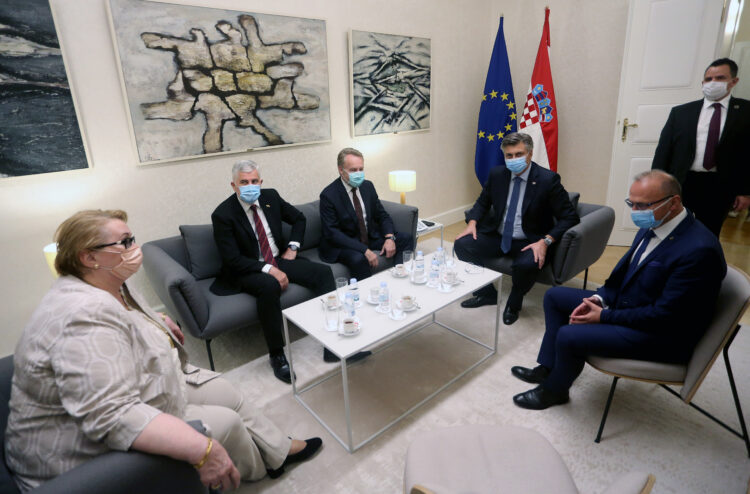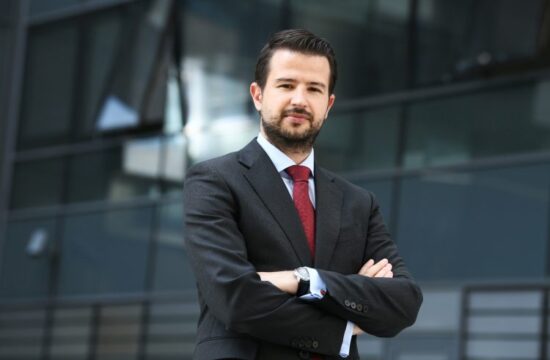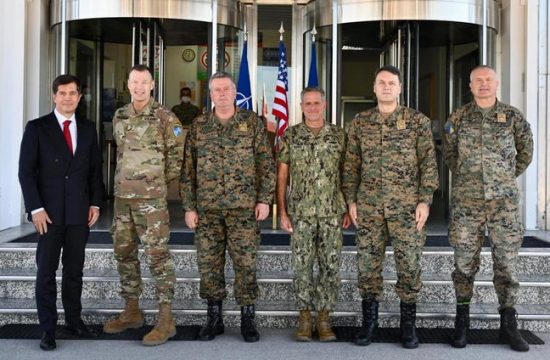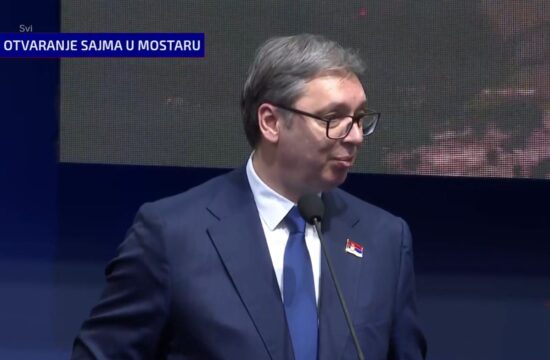
Bosnian politicians seem to be getting further apart with every new round of talks, and the latest example of this is the Zagreb meeting between Bosnian ethnic leaders and Croatian officials, which only brought even more disagreements.
Two weeks ago, the official Zagreb invited the Bosnian Serb leader and Serb presidency member Milorad Dodik to an official visit to meet with Croatian President Zoran Milanovic and Prime Minister Andrej Plenkovic, contrary to all previous diplomatic practices when all three Presidency members would visit Zagreb after the election.
But ever since the Left-leaning Zeljko Komsic from the Democratic Front (DF) beat Centre-Right Dragan Covic from the Croat Democratic Union (HDZ BiH), the official Zagreb has been ignoring the Bosnian institution, Komsic as the Croat Presidency member and President Milanovic even went so far as to call Komsic “a parasite to the detriment of Croat people in Bosnia.”
After the first meeting, the Bosnian Serb leader, known for his secessionist rhetoric, said he “never went to Zagreb as Bosnia's Presidency member but as Serb representative” and that he did not need to explain that in Zagreb.
“I didn't come here on the Presidency's behalf on in the basis of its decision. I didn't need to explain that to them, I have enough capacity to represent the interests of the Serb people. It's a pathological situation of the political Sarajevo,” Dodik said after hearing that Bosniak politicians, as well as Zeljko Komsic, condemned the visit.
The visit was also condemned by former Croatian President Stjepan Mesic who said it reminded him of a war-time meeting between the first Croatian President Franjo Tudjman and former Serbian President Slobodan Milosevic when they allegedly drew a map of divided Bosnia with parts belonging to Croatia and Serbia.
To this, Dodik nonchalantly commented for the Vecernji list daily by saying: “we didn't draw anything.”
On Monday, Bosniak and Croat leaders, Bakir Izetbegovic and Dragan Covic also went to Zagreb, after receiving an invitation from Prime Minister Andrej Plenkovic.
Speaking for RTL Croatia, Izetbegovic, the leader of the centre-right Democratic Action Party (SDA) tried to calm the situation down by saying:
“I came to change the atmosphere and paradigm in the mutual relations between Croatia and Bosnia, and Bosniaks and Croats. Every time we did that things went forward.”
Even the official Zagreb tried to present the unorthodox meeting as something completely normal by saying it was “part of a regular dialogue between the Croatian premier and political representatives of the three constituent peoples in Bosnia. Plenkovic underscored that it was essential to enable all the three constituent peoples to exercise their equal rights and enjoy their legitimate representativeness in Bosnian institutions.”
#related-news_0
The official statement added that interlocutors welcomed the signing of the agreement on amending the election legislation and on holding local elections in the southern city of Mostar, which paved the way for the further normalisation and better arrangement of the relations between the Bosniak and the Croat peoples.
However, Croat leader Dragan Covic came out of the meeting even more convinced that relations between Bosniaks and Croats are drifting further apart.
“It is important to realise that it is dangerous to reduce the least numerous (constituent) people to the status of a minority. This will be the path towards the permanent non-functioning of Bosnia and Herzegovina,” Covic said, referring to the election of Croat Presidency member Zeljko Komsic who is believed to have won thanks to Bosniak votes and some earlier Bosniak statements saying that ethnic representation does not exist in EU and modern democracies.
Pragmatically, Covic called for further talks between Croats and Bosniaks in order to ensure the equal and legitimate representation of all three Bosnian constituent peoples, but the question remains will the new round of talks result in the country getting out of the deadlock and finally functioning properly.





